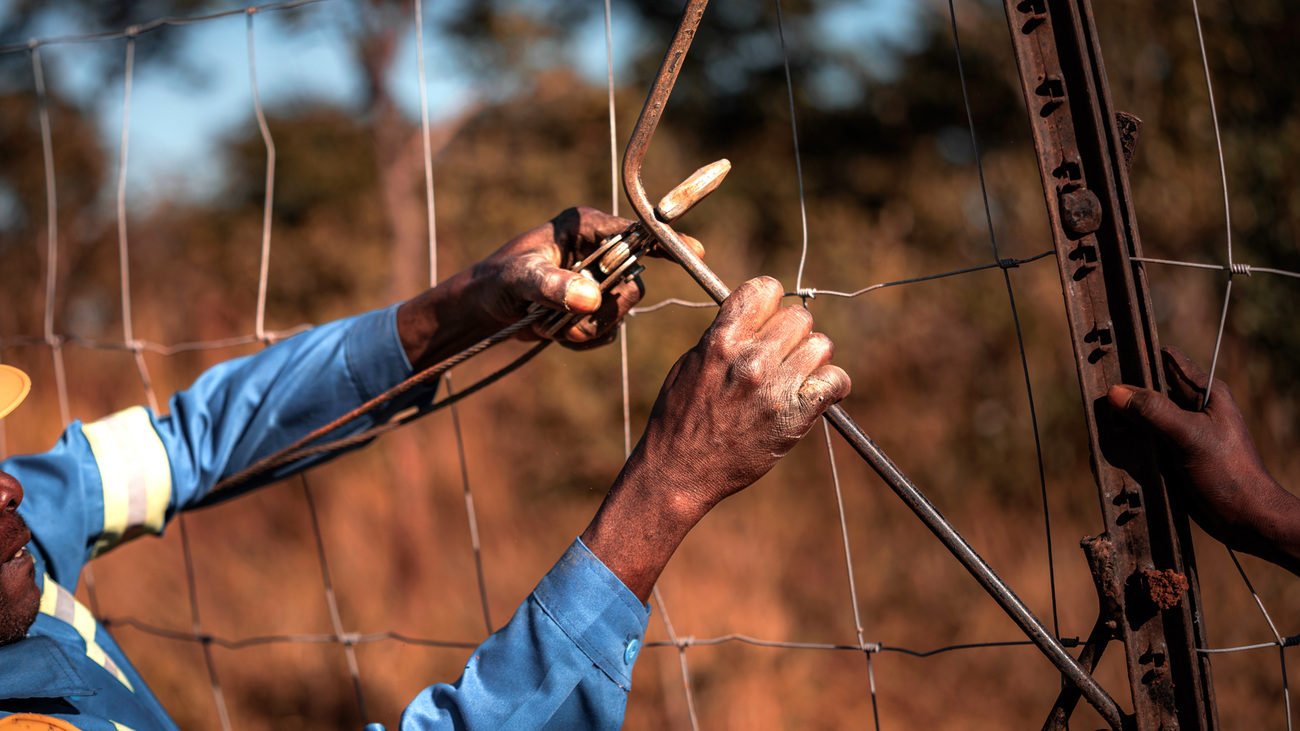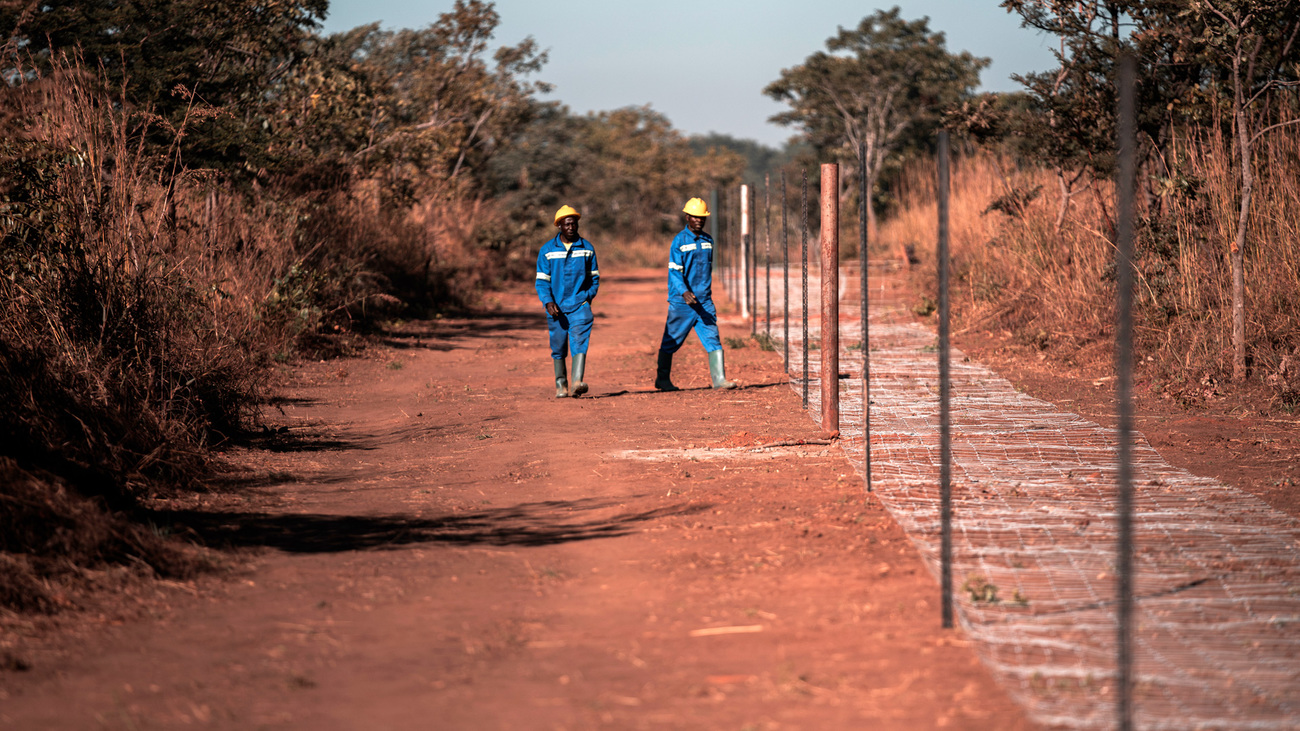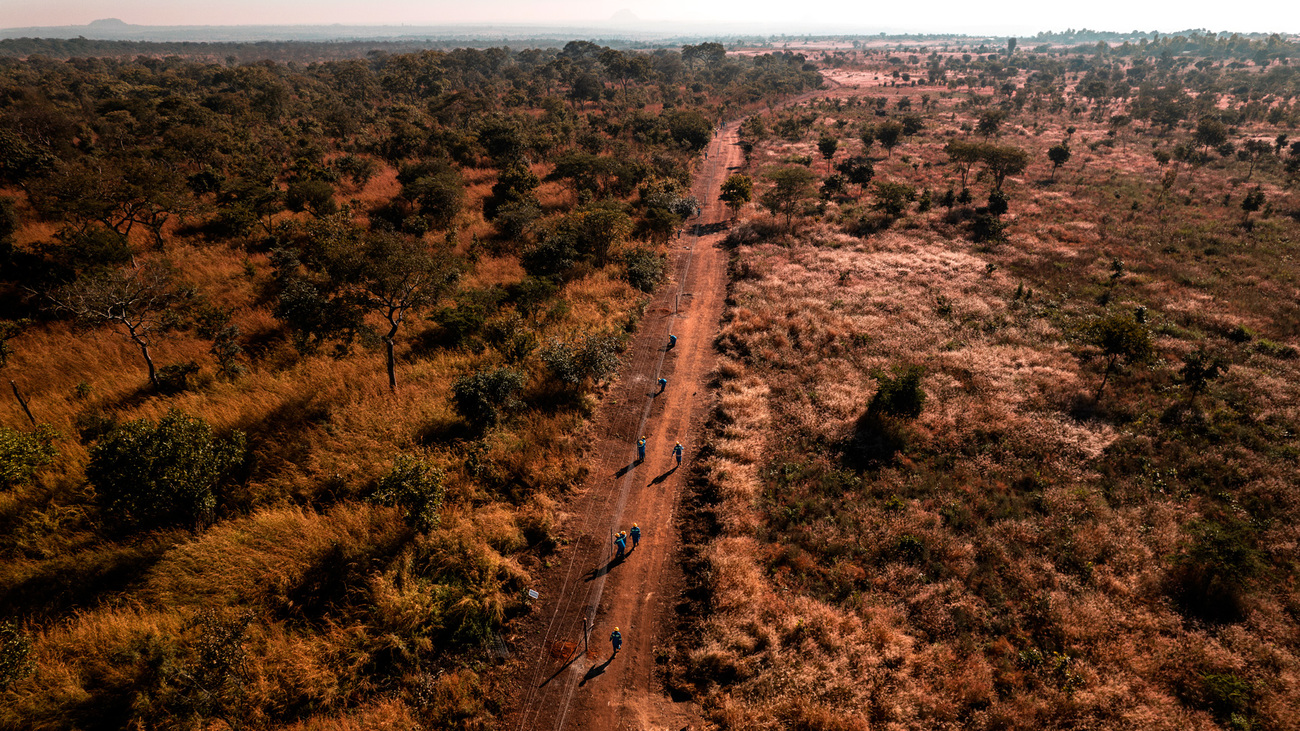Patricio Ndadzela
Fence building in Malawi’s Kasungu National Park fuels entrepreneurship
Fence building in Malawi’s Kasungu National Park fuels entrepreneurship
Davison Chirwa, a 27-year-old father of two from Bilale village in Malawi, has set his sights on opening a butchery in the future where he will be selling fresh and roasted goat meat.
‘I am just waiting for my goats to multiply a little so that I start strong,’ Chirwa said.
This business idea came after IFAW hired him and others in his village in the Kasungu District of Malawi to construct a perimeter fence around Kasungu National Park—Malawi’s second largest wildlife reserve. The money he earned from this work has now empowered him to start his own business.

Fence construction employs community members
As part of our work to combat wildlife crime in the Malawi-Zambia landscape, along with partner government departments in the two countries, we are implementing various activities to prevent human-wildlife conflict, poaching, and encroachment into the protected areas in this conservation corridor.
One of those activities is the construction of a 130-kilometre fence along the boundaries of Kasungu National Park, which will keep wildlife in the park and nearby communities safe.
To do this work, we hire people from the communities within a five-kilometre radius of the park. The work is distributed in such a way that every village through which fence passes benefits. When a construction stretch enters a given village, people from that village are contracted. In this way, we promote community participation in managing and sharing the benefits of the park.
When the Bilale village phase arrived in December 2022, Chirwa was among those hired. He had no job then, only earning a living through small-scale vegetable farming.
The fence construction earned him a wage of USD$56 per month.
‘It was good money,’ he said. ‘It came at a critical time. There is usually hunger here in December, January, and February. With this money, I was able to buy food for my family, and we were saved.’

Wages from fence-building create new opportunities
Chirwa decided to use his wages to change his life.
‘This was piecework that would last just three months, and I thought I may never get another opportunity,’ he said. ‘So this was the moment to set myself on the path to making a big difference to my life and that of my family.’
He saved some of the money he earned from the fence construction and bought two goats in February 2023. His herd has now multiplied to five.
Chirwa has already started realising benefits from this small flock. In his vegetable farming, Davie has been relying on inorganic fertiliser, which have sharply risen in price recently, making the commodity unaffordable to many smallscale farmers. For his recent tomato crop production, he used manure he collected from his goat pen.
‘It was a small piece of land, but the crop did extremely well. The income I got from the sales kept my home running for some months,’ he said.
As the rainy season begins, Chirwa is collecting more manure to apply to his maize crop. He hopes that as his goat herd increases, he will be able to collect enough manure for his entire maize field in future.
Beyond crop farming, his plan is to open a butchery one day.

Phillip Namagonya, IFAW’s community engagement officer, said when the organisation hires people from the villages for the fence project, it first gives them some advice on financial management.
‘We tell the people right on the first day that this is a short-term contract and they need to be prudent with the money they get,’ he said. ‘Naturally, some like Davie listen to that advice and they invest it or put it to good use.’
Namagonya said hiring people from the communities is also helping to reduce poaching and encroachment into the park.
‘When people have nothing to do, they will want to invade the park to extract resources for their survival,’ he said. ‘The fence project gives them a source of a living and that keeps them away from the park.’
Ultimately, individuals working on the fence go into their communities and spread messages against poaching. Through their earnings, they also serve as inspiration to others, showing that conservation initiatives can have positive impacts on their lives.
Related content
Our work can’t get done without you. Please give what you can to help animals thrive.